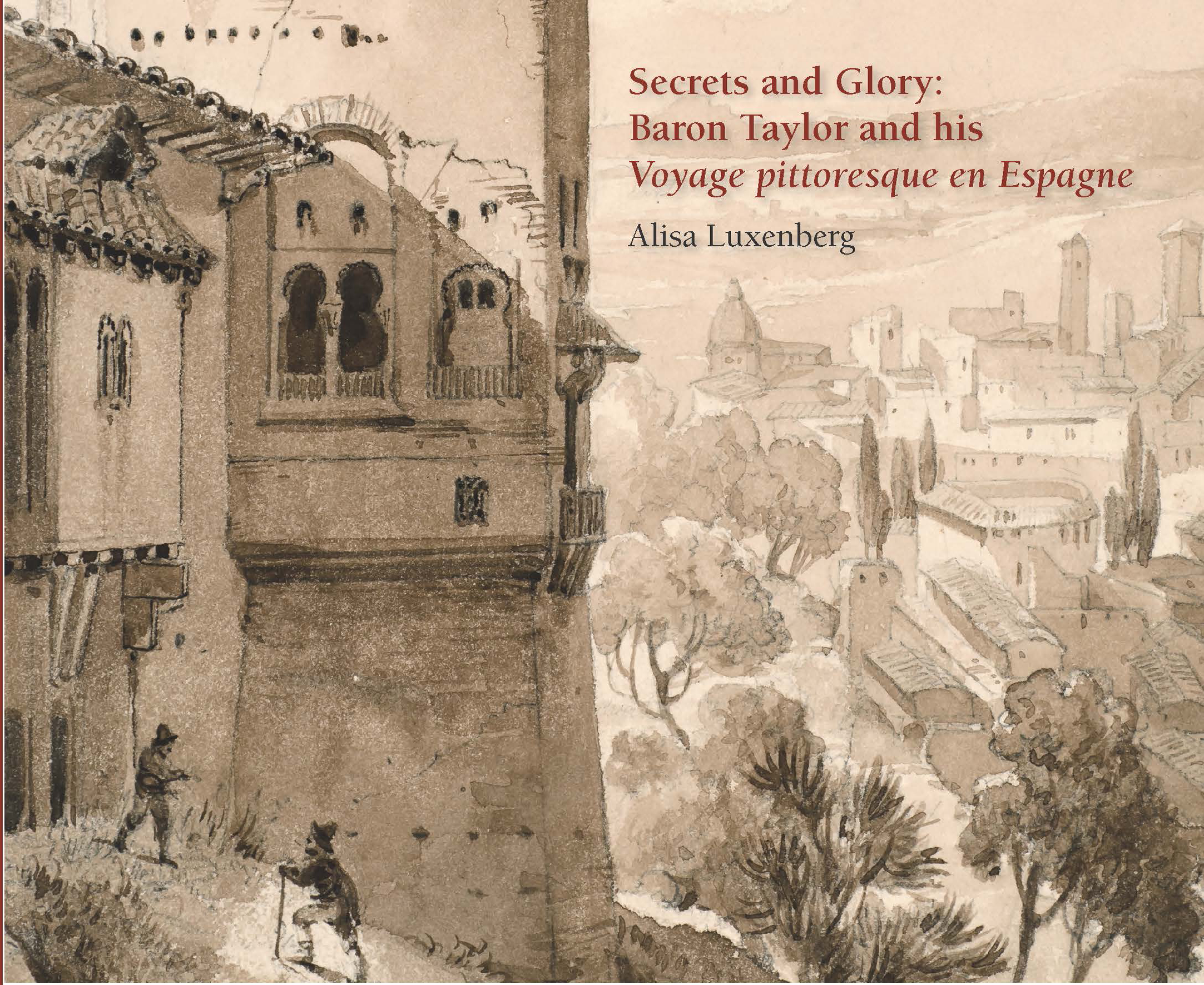Author
Alisa Luxenberg
Characteristics
328 pages; 84 color illustrations; hardcover; 27.5 x 22.5 cm
Publication
English; published by the CEEH with the collaboration of the CSA and The Hispanic Society of America; 2013
ISBN
978-84-15245-29-2
Price
€48,08
This is the first full critical study of Voyage pittoresque en Espagne by Baron Taylor (1789-1879), a key work in the nineteenth-century travel literature which established Spain as a new and exotic tourist destination in Europe. Both the long gestation of the book and the multiple facets of its author’s career have always been wrapped in mysteries, which Alisa Luxenberg now brilliantly resolves, discovering unknown aspects of Taylor’s life—his Masonic membership, his literary pseudonyms, the family he maintained in secret for a long time—which are decisive in explaining his complex personal life and his ambitious publishing ventures.
Relying on copious archival sources, which are placed in a solid social and political context, this research reveals the close links between Taylor’s travels in the Iberian Peninsula, the Voyage pittoresque en Espagne and the group of paintings that King Louis Philippe exhibited in the Spanish Gallery at the Louvre between 1838 and 1848. Luxenberg also questions whether there was a single authorship of the Voyage pittoresque, analysing its engravings in parallel with the unpublished series of drawings which served as their basis. All this enables us to understand better the way in which the great work was conceived and executed, and also the audience at which it was aimed and the impact it had on the arts and letters of its period.
Alisa Luxenberg is professor of art history at the University of Georgia (Athens, USA). Her research focuses on Franco-Spanish artistic confrontation and exchange, modes of realism, and intersections of art and science. Her 2008 book, The Galerie Espagnole and the Museo Nacional, 1835-1853: Saving Spanish Art, or The Politics of Patrimony (Ashgate), examined two new museums of historic Spanish art in Paris and Madrid and their positioning within contemporaneous debates over the control and preservation of artistic patrimony.

